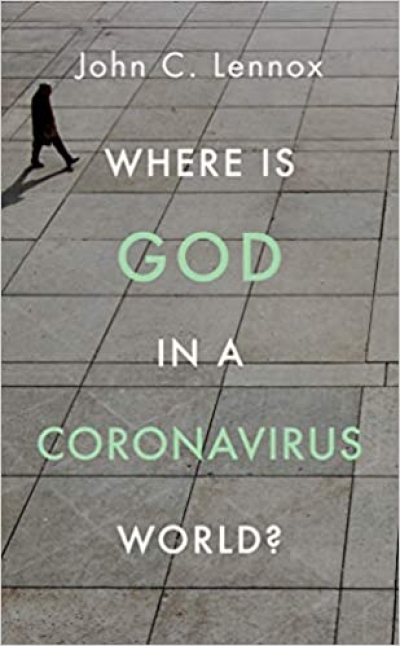In response to the coronavirus crisis, John Lennox, Emeritus Professor of Mathematics at the University of Oxford, who is famous for defending the Christian faith with authority in the scientific community, presents a case to the wider public for the value of the Christian worldview in the face of natural disasters that are outside of man’s control.
In this short book of 62 pages, Lennox does not pretend answering fully the puzzling question of why pain and suffering occur. However, he does put the issue into historical perspective, comparing the theist approach to the matter with the atheist approach. His arguments are well balanced and subtle, drawing from the Bible and his own personal experience of suffering. He quotes CS Lewis, Solzhenitsyn and others to support his points.
Nature Flawed and Fractured
Lennox starts by asking the questions that mankind so often asks when disasters strike. He then presents a history of plagues and viruses, putting the coronavirus into context of the many viruses that are part of our human condition (many of which are, apparently, good for the body). He then moves briefly to discuss natural disasters in general.
Lennox draws a distinction between ‘moral evil’ and ‘natural evil’ (the latter being suffering not caused or controlled by man). Nature became flawed and has fractured since the Fall, Lennox argues, as if the Fall triggered an avalanche of catastrophe in the natural world which started gradually but has gained momentum.
In response to the coronavirus crisis, John Lennox presents a case for the value of the Christian worldview in the face of natural disasters that are outside of man’s control.
Today, we “are faced with a mixed picture…a flower opening in the sun...and the ugliness of a coronavirus destroying the human respiratory system”, says Lennox (p42). But he also writes of the evidence of God’s love and the good difference that Christian service and witness have made in the world.
Cathedral Example
One chapter that could be improved is entitled ‘Cathedrals and worldviews’, in which Lennox discusses two cathedrals that have both been ruined – one by natural catastrophe, the other by man – to illustrate the two types of evil. In my opinion unbelievers are not usually very impressed by the idea of cathedrals and so this picture may not be as powerful and convincing to sceptics as Lennox perhaps hopes.
Evangelistic Tool
This book (or rather, booklet) is not meant to be a scientific thesis or a theological essay. It is intended simply to help ordinary thinking people to consider (or reconsider) God’s truth in a broken world.
It is mainly an evangelistic tool, speaking to an audience seeking hope and reflecting on the meaning of life amid a global pandemic. It will also help Christians to respond to unbelieving friends and family who are asking questions.
Very well written and a quick, simple read, challenging the dominant worldly perspective on this matter. Recommended.
‘Where is God in a Coronavirus World?’ is available from The Good Book for £1.59 (e-book) or £2.54 (paperback). 11-page preview available. Also available as an audiobook.
Last month, John Lennox interviewed on this subject with Ravi Zacharias International Ministries. Watch on Youtube.





